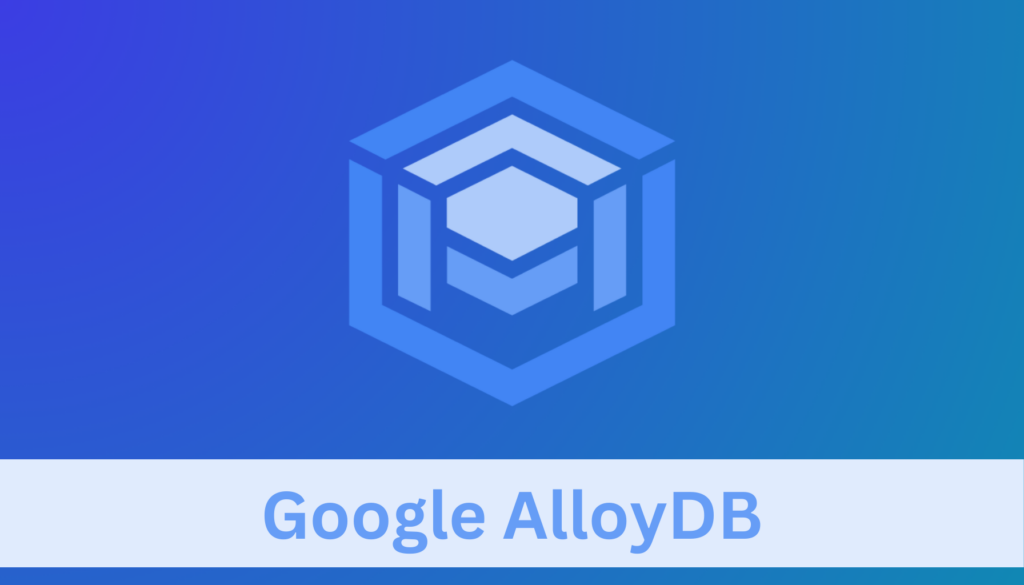What is Google AlloyDB?
Google AlloyDB is a fully managed database service provided by Google Cloud Platform (GCP), designed to offer high-performance and scalable cloud database solutions for PostgreSQL. It’s built to handle large-scale and demanding database workloads, leveraging Google’s advanced infrastructure and technology. The service primarily targets businesses and developers who need a reliable, secure, and efficient database management system. AlloyDB distinguishes itself by providing a robust and feature-rich environment that simplifies the complexities of database administration while enhancing performance and scalability. This makes it an ideal choice for applications requiring high throughput, low latency, and strong consistency, whether migrating from on-premises databases or other cloud platforms.
What are the Key Features of Google AlloyDB?
As a powerful database service, AlloyDB provides a range of features that fulfill diverse data management needs. Each of these features plays a crucial role in enhancing the overall performance and functionality of your database operations.
1. High Performance
AlloyDB is engineered for high performance, offering fast query processing and efficient data handling. It’s optimized for complex, data-intensive operations, making it ideal for businesses that require quick data retrieval and processing. This performance is achieved through advanced hardware, such as high-speed networks and storage systems, and software optimizations.
2. High Availability
In terms of availability, AlloyDB offers a 99.99% uptime Service Level Agreement (SLA). And it, self detects and recovers from any database failure within 60 seconds, making it an exceptionally reliable option for critical applications. This high level of uptime assurance is crucial for businesses that require constant database accessibility and can’t afford extended downtimes.
3. Scalability and Flexibility
With AlloyDB, scalability is a key advantage. It allows you to scale your database resources up or down based on your changing needs. This flexibility ensures that you can handle varying workloads without compromising on performance or incurring unnecessary costs. Whether your business is experiencing growth or needs to adjust for seasonal fluctuations, AlloyDB adapts seamlessly.
4. Security and Compliance
Security in AlloyDB is top-notch, featuring robust measures like encryption, identity and access management, and compliance with various industry standards. These security features ensure that your data is protected against unauthorized access and breaches, providing peace of mind in an era where data security is critical.
5. Fully Managed Services
One of the standout features of AlloyDB is its fully managed nature. This means that GCP handles the administration tasks such as updates, patching, and maintenance, allowing you to focus on your core business activities. This not only saves time but also reduces the need for specialized in-house database management skills.
6. Integrated Tools
AlloyDB integrates with a variety of GCP tools and services, enhancing its functionality and ease of use. These integrations include services for analytics, machine learning, and data processing, enabling you to build sophisticated, data-driven applications.
7. Monitoring and Analysis Tools
Lastly, AlloyDB comes equipped with comprehensive monitoring and analysis tools. These tools provide valuable insights into database performance, usage patterns, and potential issues. They enable proactive management of your database environment, ensuring optimal performance and aiding in informed decision-making.
Google AlloyDB Pricing Overview
Understanding the pricing structure of AlloyDB is crucial for effective budgeting and financial planning. AlloyDB offers a transparent and flexible pricing model, tailored to different usage patterns and business sizes.
Pricing Components
The pricing is based on several key components, they are:
- Compute Resources: Costs associated with the computing power used by your database instances. This includes the CPU and memory resources.
- Storage Costs: Charges for the data storage space used by your databases, including database backups and logs.
- Network Usage: Fees for data transferred in and out of AlloyDB, are particularly important for applications with high external traffic.
Pricing Models and Plans
AlloyDB’s pricing models are designed to offer flexibility:
- On-Demand Pricing: Ideal for unpredictable workloads, allowing you to pay for compute and storage resources as you use them, without upfront commitments. It’s recommended to use it when you want to measure the workload of your application before going into committed use.
- Committed use discounts: Suitable for predictable workloads, offering a lower cost in exchange for a commitment to a certain level of resources for a fixed term (e.g., one or three years).
Does Google AlloyDB comes with a Free Tier?
Unfortunately, AlloyDB is not included in the GCPs free tier product list. But Transferring data in AlloyDB is free. And GCP also provides a $300 credit for 90 days to try out all their service. This is effective for new users who want to try out GCP before making some investment in it.
How to Optimize Google AlloyDB for Cost Savings?
Optimizing costs for AlloyDB involves a strategic approach to resource management and usage. By applying these strategies, you can ensure efficient utilization of AlloyDB services while minimizing expenses.
1. Resource Utilization
Monitor and analyze your AlloyDB usage to ensure that you are not over-provisioning resources. Use AlloyDB’s monitoring tools to track performance and scale your resources according to actual needs, avoiding unnecessary costs.
2. Scheduling for Cost Efficiency
Implement scheduling to turn off or scale down AlloyDB resources during off-peak hours. This is particularly useful for development and testing environments that do not need to run 24/7.
3. Selecting the Right Plan
Choose the most cost-effective pricing plan based on your usage patterns. If your workload is predictable, consider reserved instances for long-term savings. For variable workloads, on-demand pricing might be more suitable.
4. Data Storage Optimization
Regularly review and optimize your data storage. Archive or delete outdated or unnecessary data to reduce storage costs. Also, consider different storage classes based on data access patterns.
5. Traffic Management
Manage network costs by optimizing data transfer processes. Utilize caching and data compression to reduce the amount of data transferred in and out of AlloyDB.
Conclusion
AlloyDB is a powerful, fully managed database service that offers high performance, scalability, and robust security features. Its integration with various GCP tools and services, along with its sophisticated monitoring and analysis capabilities, make it a top choice for enterprises seeking efficient database solutions. Understanding its pricing structure and employing cost optimization strategies can significantly enhance its value proposition. For a successful implementation and to fully leverage AlloyDB’s capabilities, we recommend consulting with a professional.
Ready to Optimize Your Google AlloyDB Usage?
[Reach out for specialized guidance] to ensure your setup is both cost-effective and high-performing.

